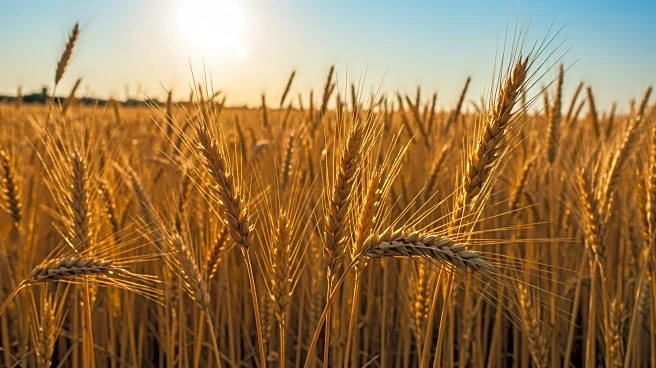What's Happening?
French President Emmanuel Macron and Brazilian President Luiz Inácio Lula da Silva are working to finalize a trade agreement between the European Union and Mercosur. The agreement aims to provide Mercosur economies, including Brazil, with privileged access to the European market, particularly in agriculture and livestock. However, Macron has expressed concerns that the deal could harm French farmers by exposing them to competition from South American producers who are not subject to EU regulations. Macron insists on an 'ambitious' agreement that protects French agriculture, reflecting widespread opposition in France to the pact. The negotiations highlight the challenges within European trade policy, as member states often prioritize national interests over collective EU strategies.
Why It's Important?
The EU-Mercosur trade agreement is significant as it could reshape trade relations between Europe and South America, offering new market opportunities for Mercosur countries. For Brazil, the agreement is crucial due to the imposition of a 50% tariff by the United States on Brazilian exports, necessitating new markets for its agricultural products. However, the deal poses risks to European farmers, particularly in France, who fear increased competition and lower profit margins. The negotiations underscore the tension between national interests and EU-wide trade policies, with France seeking to protect its agricultural sector while other EU countries may benefit from increased trade with Mercosur.
What's Next?
The outcome of the negotiations is expected by December, coinciding with the Mercosur summit in Brazil. If President Lula can secure conditional support from Macron, the agreement may be signed, though ratification in European parliaments could face significant opposition. The deal's impact on European farmers remains a contentious issue, with potential financial compensation discussed but unlikely to fully address their concerns. The agreement's success will depend on balancing the interests of various stakeholders, including EU member states and Mercosur countries.









